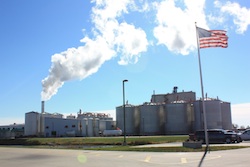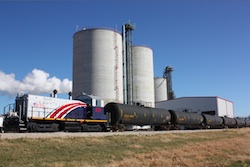Real Goods Solar, has signed a definitive agreement to acquire Mercury Energy, Inc. d/b/a Mercury Solar Systems in a merger transaction. Based in Port Chester, New York, Mercury Solar Systems is one of the region’s top solar companies.
 Real Goods Solar will issue 7.9 million shares of its class A common stock, subject to certain adjustments based on closing working capital and the price of the class A common stock, as the consideration for the acquisition of Mercury. The transaction is subject to the approval of the shareholders of each of Real Goods Solar and Mercury. A representative of Mercury’s current board will be nominated to join Real Goods Solar’s board of directors.
Real Goods Solar will issue 7.9 million shares of its class A common stock, subject to certain adjustments based on closing working capital and the price of the class A common stock, as the consideration for the acquisition of Mercury. The transaction is subject to the approval of the shareholders of each of Real Goods Solar and Mercury. A representative of Mercury’s current board will be nominated to join Real Goods Solar’s board of directors.
“This transaction brings together two of the country’s highly respected and experienced solar companies, creating a very strong and talented team to increase our market reach and our overall depth and breadth of capabilities,” said Kam Mofid, CEO of Real Goods Solar. “This acquisition significantly expands our presence as a major solar solutions provider in key solar markets across the East Coast. As an added benefit, it also strengthens our balance sheet with additional working capital that we expect to use to further accelerate growth in key markets across the country.”
 Mercury Energy was formed in 2008. The company has installed more than 50 megawatts of solar projects that have cumulatively generated over $250 million in revenues, including $35 million in 2012. Mercury’s assets include approximately $10 million of cash, and it has no debt. After the transaction closes, the cash balance will be available to Real Goods Solar for general corporate purposes and to accelerate the growth of the combined business. Upon closing, Mercury will bring more than 50 employees to Real Goods Solar.
Mercury Energy was formed in 2008. The company has installed more than 50 megawatts of solar projects that have cumulatively generated over $250 million in revenues, including $35 million in 2012. Mercury’s assets include approximately $10 million of cash, and it has no debt. After the transaction closes, the cash balance will be available to Real Goods Solar for general corporate purposes and to accelerate the growth of the combined business. Upon closing, Mercury will bring more than 50 employees to Real Goods Solar.
Haines added, “Mercury’s years of industry experience in designing and installing solar systems, including nearly 2,000 solar installations of varying complexity and size for commercial, residential and utility customers, is highly complementary to the business of Real Goods Solar. As we join forces with Real Goods Solar, our combined size, scale, and financial resources will enable us to increase not only our customer acquisition and project development capabilities, but to do so while bringing to our customers more comprehensive end-to-end solutions, including attractive project finance options.”












